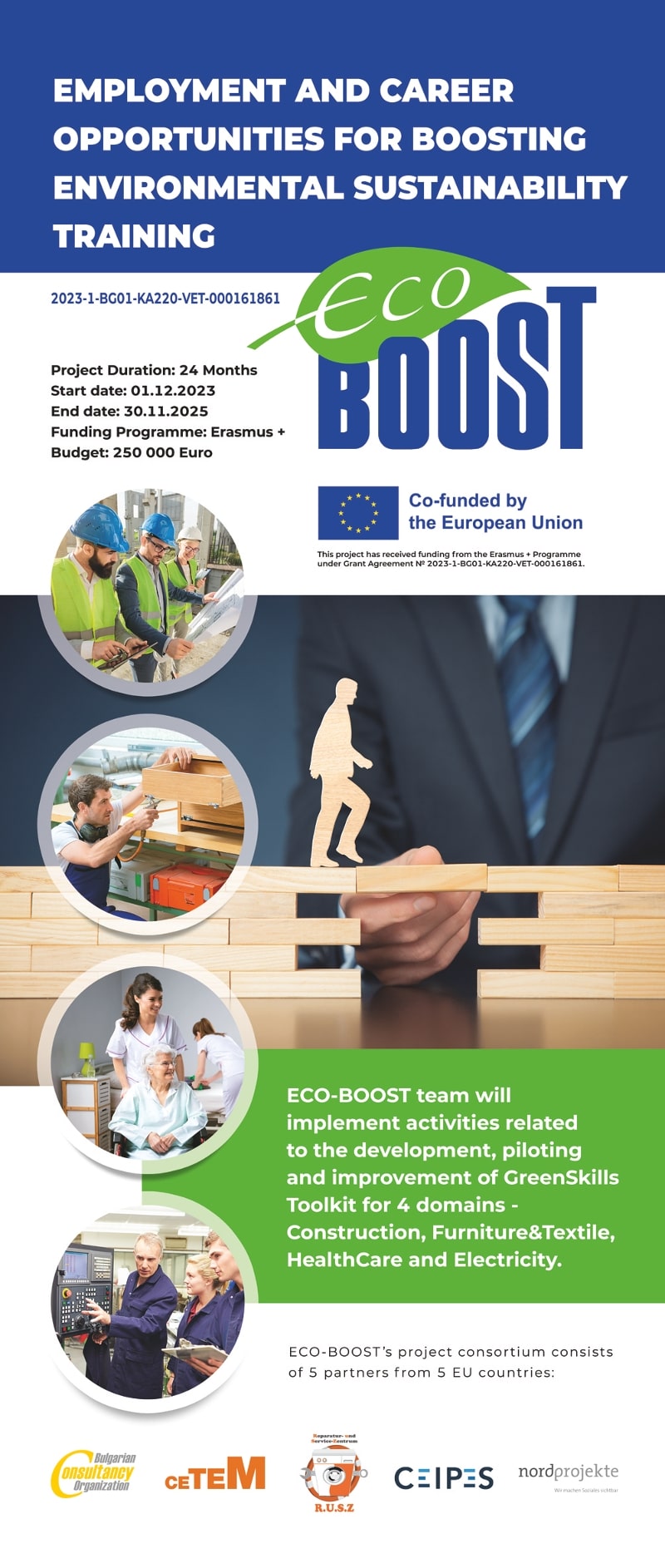
High-quality training and further education for sustainable technology
The ECO-BOOST project aims to expand and develop the skills of educators in vocational education and training. It aims to improve and support the provision of high quality learning opportunities for low-skilled learners in vocational education and training. The partnership aims not only to support educators in acquiring new skills and knowledge, but also to ensure that this knowledge responds to the dynamically evolving needs of the labor market.
Construction, furniture, textiles, health and electricity
The ECO-BOOST project will be implemented through activities to develop, test and improve the GreenSkills Toolkit for four sectors - construction, furniture and textiles, health and electricity. The toolkit is based on the GreenSkills Framework and will be piloted through workshops/trainings and multiplier events. A communication plan will ensure comprehensive dissemination of the results during and after the project.
10 workshops in 5 countries
ECO-BOOST was designed to support VET teachers in integrating new training approaches for soft and green skills. The aim is to provide tailor-made, high-quality learning experiences for low-skilled unemployed learners in vocational education and training. The project plan is to pilot ten workshops/trainings in five project countries, focusing on the construction, furniture and textiles, healthcare and electricity sectors. The use of gamification and the combination of formal, informal and non-formal learning will promote an innovative approach to vocational education and training.
The R.U.S.Z as a project partner
For the longest time of its existence, R.U.S.Z has contributed its point of view and expertise in repair and reuse to many different training and research and development projects and is now very well networked internationally. As a former socio-economic enterprise and eco-social showcase project, the R.U.S.Z has the combination of ecological and labor market policy requirements deeply embedded in its DNA, a lot of experience with repair initiatives such as the Repair Café and, last but not least, the successful qualification measure Re(Se)Tec to combat the shortage of skilled workers in the repair sector.